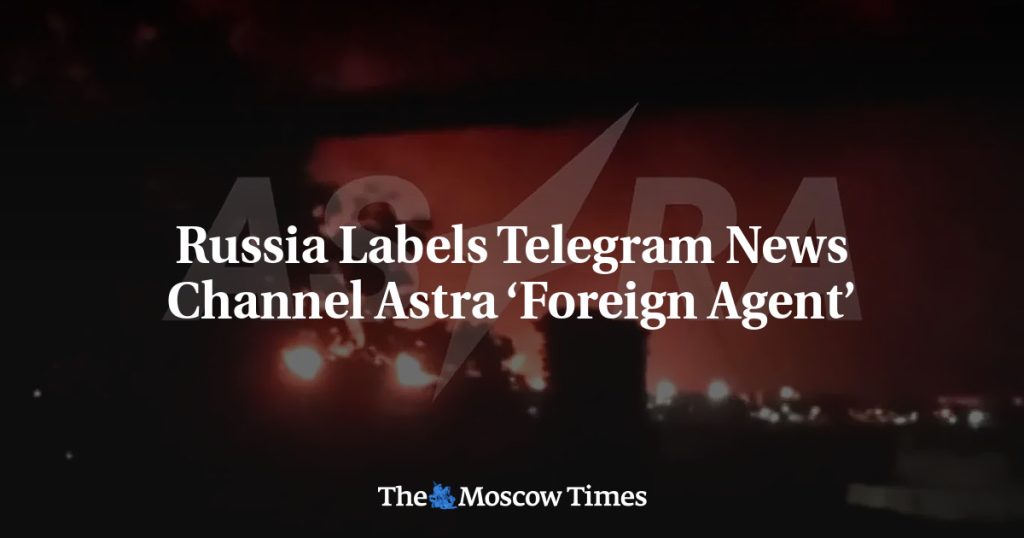Authorities in Russia have labeled the anti-war Telegram news channel Astra as a “foreign agent” due to accusations of spreading inaccurate information about government policy in order to promote a negative image of the Russian military. The Justice Ministry accused Astra of opposing the special military operation in Ukraine and noted that the creator and editor-in-chief of the internet portal reside outside Russia. Alongside Astra, several individuals, including a Yabloko opposition party member, a political blogger, a regional activist, and a literary critic, were also designated as “foreign agents” on Friday. This label is used by Russia to target individuals and organizations they consider enemies of the state, requiring them to submit financial reports and display disclaimers in publications and social media posts.
Despite being labeled a “foreign agent,” Astra, founded by journalist Anastasia Chumakova, has continued its work of reporting extensively on the conflict in Ukraine since its founding in the first week of Russia’s full-scale invasion. The news channel has stated that it will continue its operations despite the designation, highlighting that the “foreign agent” law prohibits ad sales to Russians but does not ban readers from sharing its content or making donations. This suggests that Astra intends to persevere in delivering its anti-war messaging, despite the challenges imposed by the designation.
The actions taken by the Russian authorities reflect their stance against those who criticize government policies, particularly in the context of the conflict in Ukraine. By labeling individuals and organizations as “foreign agents,” Russia aims to restrict their activities and discredit their messages by implying they are working against the interests of the state. The use of this designation signifies the government’s efforts to control the narrative and suppress dissenting voices, especially regarding sensitive issues such as military operations.
The designation of Astra and other individuals as “foreign agents” raises concerns about freedom of speech and expression in Russia. Critics argue that such labeling can have a chilling effect on independent media and civil society, making it harder for them to operate and communicate their viewpoints to the public. The requirement to submit financial reports and display disclaimers can create additional burdens for those targeted, potentially leading to self-censorship and a reluctance to engage in activities deemed by the government as undesirable.
Despite the challenges and restrictions imposed by the “foreign agent” designation, Astra and other affected individuals have signaled their determination to continue their work. By defying the government’s efforts to silence them, they are demonstrating resilience and commitment to their cause, even in the face of adversity. This defiance may inspire others to speak out against government actions and advocate for transparency, accountability, and human rights, regardless of the consequences they may face.
In conclusion, the labeling of Astra and several individuals as “foreign agents” by Russian authorities underscores the ongoing tensions surrounding freedom of speech and dissent in the country. The accusations of spreading inaccurate information and promoting a negative image of the Russian military highlight the government’s efforts to control the narrative and suppress voices critical of its policies. Despite these challenges, Astra and others have vowed to continue their work, signaling a commitment to upholding their principles and advocating for peace and justice in the face of adversity. The ongoing struggle between the government and independent media and civil society actors reflects a larger battle for democracy, accountability, and human rights in Russia.














